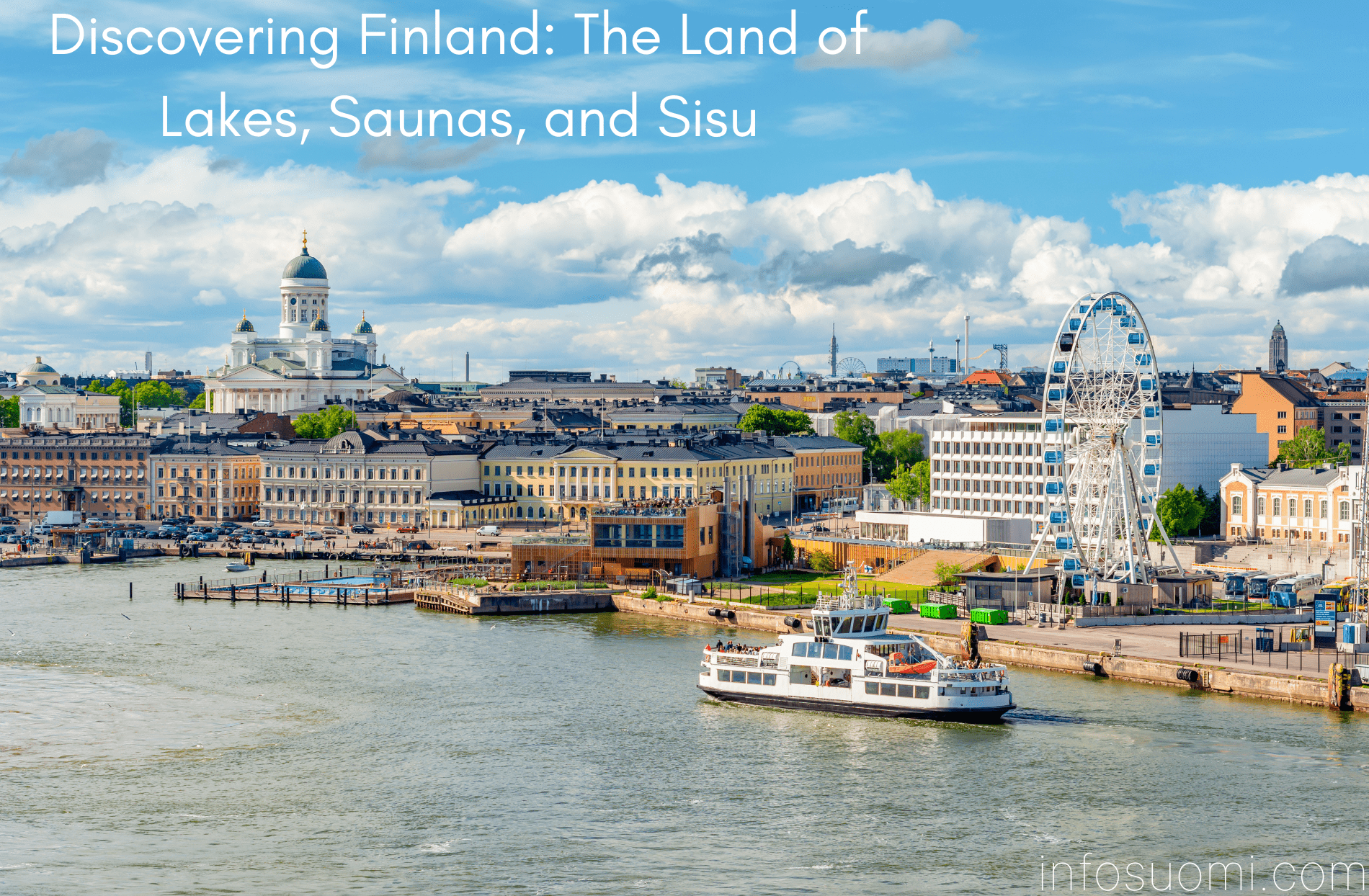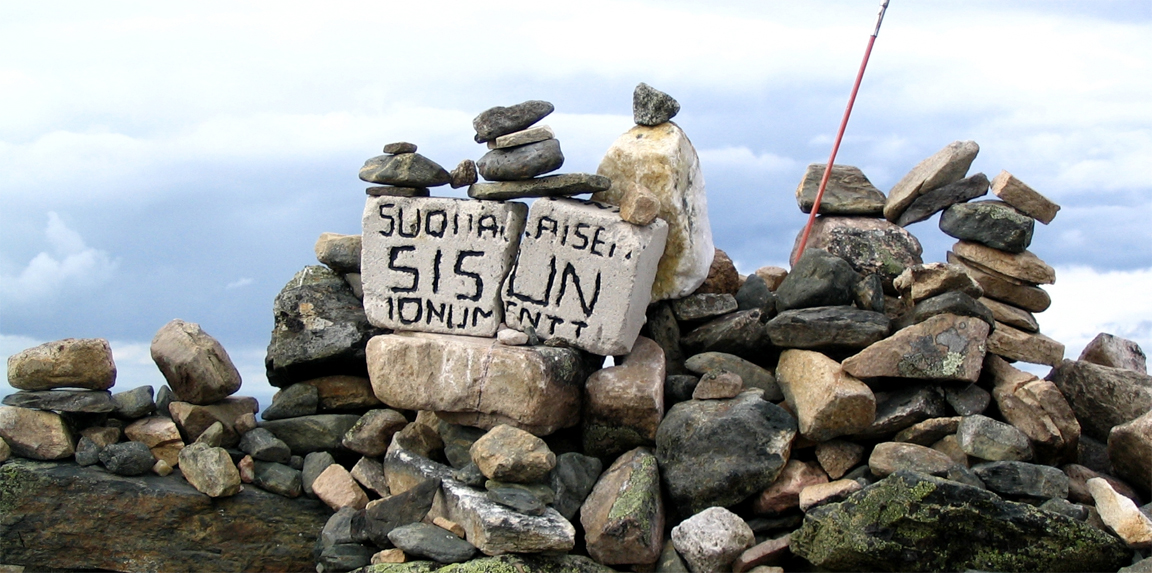Finland is a Nordic country located in Northern Europe. It shares borders with Sweden to the west, Norway to the north, and Russia to the east. To the south, it is bounded by the Gulf of Finland and the Gulf of Bothnia, which are part of the Baltic Sea. Finland’s landscape is characterized by thousands of lakes, dense forests, and rolling hills, earning it the nickname “Land of a Thousand Lakes.” Additionally, Finland experiences distinct seasons, with cold winters and relatively mild summers.

Population: As of recent data, Finland has a population of around 5.5 million people. The capital city, Helsinki, is the largest in Finland and serves as its cultural, economic, and political hub. Other major cities include Espoo, Tampere, Vantaa, and Oulu. Finland has a relatively homogeneous population, with the majority being ethnic Finns However there are also significant populations of Swedish-speaking Finns, Sami people in the north, and smaller immigrant communities.
Cultural Significance: Finland boasts a rich cultural heritage which is influenced by its history, natural environment, and proximity to neighboring countries. Some key aspects of Finnish culture include:
- Sauna Culture: Saunas are an integral part of Finnish life, with nearly every household having access to one. Saunas are not just for relaxation but also for socializing and promoting physical and mental well-being.
- Sisu: The concept of “sisu” embodies Finnish resilience, determination, and perseverance in the face of adversity. It’s a cultural trait that has deep roots in Finnish history and is often celebrated as a defining characteristic of the Finnish national identity.
- Nature Appreciation: Finland’s pristine natural environment plays a significant role in its culture. Finns have a strong connection to nature, with activities such as hiking, foraging, fishing, and berry picking being popular pastimes.
- Design and Innovation: Finland is renowned for its design excellence and innovation. Iconic Finnish design brands like Marimekko, Iittala, and Artek have gained international acclaim for their timeless aesthetics and functional designs.
- Literature and Music: Finnish literature, folklore, and music are also important aspects of the country’s cultural heritage. Finnish epic poetry, such as the Kalevala, and the music of composers like Jean Sibelius are deeply ingrained in Finnish culture and identity.
Overall, Finland‘s geography, population, and cultural significance contribute to its unique identity as a modern, forward-thinking Nordic nation with a strong sense of tradition and connection to nature. Furthermore, let’s learn more about the Finnish lifestyle and their social values.
The Finnish Lifestyle
The Finnish lifestyle is unique and influenced by the country’s natural environment, cultural traditions, and social values. Here are some key aspects:
1. Connection to Nature
Finns have a deep connection to nature, which plays a central role in their daily lives and recreational activities. With vast forests, numerous lakes, and expansive wilderness areas, Finland offers ample opportunities for outdoor activities such as hiking, fishing, berry picking, and cross-country skiing. The Finnish concept of “Everyman’s Right” (Jokamiehen Oikeus) allows everyone to enjoy the outdoors freely, even on private land, as long as they respect nature and property.
2. Sauna Culture
The sauna is a quintessential part of Finnish life, with almost every household having access to one. Saunas are used for relaxation, socializing, and even business meetings. The ritual often involves heating up in the sauna, cooling down in a lake or snow, and then repeating the process. Saunas are seen as places for mental and physical rejuvenation and are deeply embedded in Finnish social and cultural practices.
3. Sisu
“Sisu” is a Finnish word that translates to a unique form of resilience, determination, and courage in the face of challenges. This concept is an integral part of the Finnish identity and is often cited as a reason for the country’s ability to thrive in harsh conditions and achieve success in various fields.

image ref: finnstyle dot com/beyond-perseverance
4. Work-Life Balance
Finland is known for its excellent work-life balance. The work culture emphasizes efficiency and productivity during work hours, allowing for shorter workdays and more time for family, hobbies, and relaxation. Parental leave policies are generous, and there is a strong emphasis on equality and family well-being.
5. Education and Lifelong Learning
The Finnish education system is highly regarded worldwide for its quality and equity. Education is free at all levels, and there is a strong focus on equal opportunities for all students. Lifelong learning is encouraged, with many opportunities for adult education and professional development.
6. Healthy Living
Finns prioritize healthy living and well-being. This is reflected in their diet, which includes a lot of fish, whole grains, berries, and vegetables. Physical activity is also an important part of daily life, whether through commuting by bike, engaging in sports, or enjoying outdoor activities.
7. Minimalism and Design
Finnish design is known for its simplicity, functionality, and beauty. This minimalist aesthetic extends to Finnish homes and lifestyle choices, with a preference for uncluttered spaces, natural materials, and practical, high-quality items.
8. Community and Social Trust
Finns place a high value on community and social trust. The society is relatively egalitarian, with a strong social safety net and high levels of trust in public institutions. This sense of community is also reflected in local events, festivals, and communal activities.
9. Seasonal Rhythms
The changing seasons significantly impact Finnish life. The long, dark winters encourage cozy indoor activities and celebrations like Christmas and Midsummer (Juhannus). which is a major celebration marking the longest day of the year with bonfires, music, and festivities.
10. Cultural Heritage and Traditions
Finns take pride in their cultural heritage, which includes traditional music, dance, and folklore. Festivals, both modern and traditional, are celebrated with enthusiasm. Finnish literature, particularly the national epic Kalevala, plays a significant role in shaping the national identity.
In summary, the Finnish lifestyle is characterized by a close relationship with nature, a commitment to well-being and balance, a deep sense of community, and a cultural emphasis on resilience and simplicity. These elements together create a unique and fulfilling way of life that is admired globally